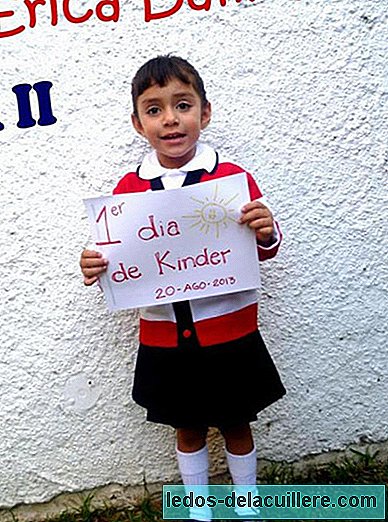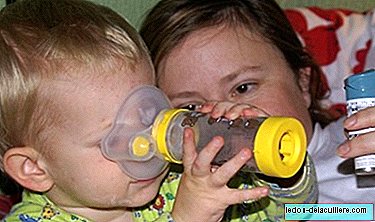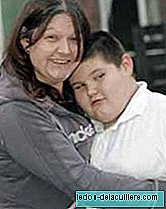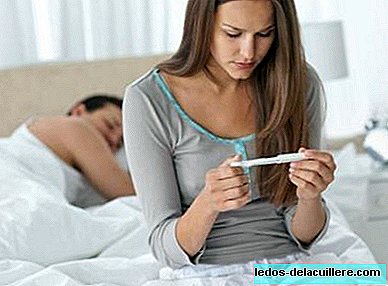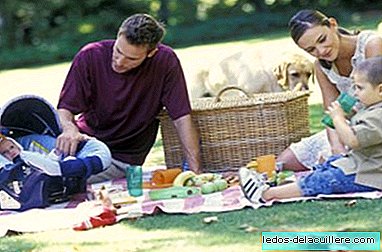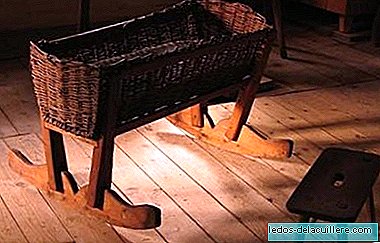
We return with one more installment of the series "Those wonderful years" and after talking about beaches, bottles or how to make sure a man, today we will talk about ten tremendous paternity rules from another era, some of which may sound like you today.
A teaspoon of sugar

Some years ago, when a child cried it was recommended that he be given a teaspoon of sugar, honey or any other sweet thing we had on hand, alcohol included. And there was still no news of the dangers of giving honey to babies or those of sugar and obesity. It was simply a good way to calm them down or to admit bottles (it is clear that babies from before were not dumb either).
Baby Tranquilizers
Today, many of us would give anything because there was something that made our children sleep, without harming them, of course, but in the Victorian era many of the medications that were given to babies to "calm them" they contained opiates. The truth is that one does not know how we got here with a generation that was already "placed" within a few months of being born.
Wrap baby

Today the technique of wrapping the baby is used both to calm them and to avoid hip problems. But back in the middle ages and according to writings of the time the babies were completely wrapped in linen strips until eight or nine months (and I think they did not go beyond because the child had to run away) According to the belief of the time this The method helped children grow up "straight", something that seems not to be misleading.
You are pregnant? So this pint of beer is for you

This is an example that any past time was better and it is that a few years ago pregnant women were recommended to drink half pint of Guinness or even a whole pint a day, (yes, half a liter of beer a day). The reason for such an alcoholic intake was none other than the popular belief that such beer was rich in iron, something that unfortunately has been shown not to be so. I fear that nowadays we must look for the source of iron in other less appetizing places.
No parents in the delivery room

More or less it is known that the fact that there are parents in the delivery room is, as my grandmother would say, "an invention of these modern". And something I'm glad, because I was lucky to attend the birth of my children and it's something I will never forget. And although there are those who do not paint it too well, it is something that I always recommend.
But in the last century and even today in certain places it is something that was unthinkable. In fact, it is normal for parents, at that time, to stay outside waiting for news or even to go to the bar to wet their nerves in a pint of beer.
Nothing to show darling

In a 1928 manual, he indicated to parents that they should never kiss their children, at most, a good night kiss on the back of the neck when going to bed. The rest of the day they should bump their hands to greet.
Raise children abroad

If something became fashionable in the 20s, it was to keep the children abroad as long as possible, so naps, games, diaper changes and meals were attempted outside the home. The belief was that the more time the child spent in open spaces, the healthier it would develop. Do not forget that putting creams of factor 50 or more on children is something from two days ago.
Smoking in pregnancy was considered safe
In 1966 it was considered that a pregnant woman could smoke up to half a pack of cigarettes a day without her being dangerous to her health or that of the baby. Almost the same as now.
Liver, the more the better
It is not that today it is a very common dish and in fact it is contraindicated for pregnant women due to its high content of vitamin A that can be harmful for the baby. But by the 70's, the opposite was believed and pregnant women were told to eat as much as they could because they were a source of iron.
It grows!

Today, at least in much of the world, child protection is something that is taken seriously, so that our children can enjoy being children, being protected until a certain age. But in the mid-20th century, two and three-year-old children were considered capable of washing, dressing and eating for themselves. Until 1880, children lacked rights and from that year only those over 10 had any, in fact, child labor was absolutely normal and a child with 7 years could already marry, be accused of a crime and could even be ecclesiastical pastor.



